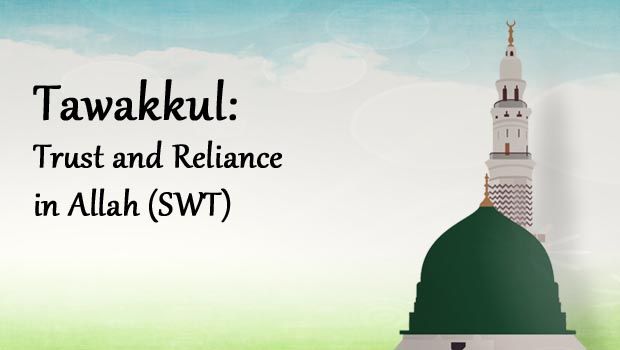Picture this: The stage is set, the walls are decorated, the doors are open,and the last minute preparations are wrapping up. The table settings and centerpieces are placed to perfection. The banquet hall looks like a scene from a fairy-tale wedding. The guests for the fundraiser, conference, or program are beginning to arrive. As they trickle in one by one, stopping by registration and then taking their seats, they comment on how beautiful the hall looks and eagerly await the program to begin. Little do they know that behind the polished smiles and the perfect-looking venue are a multitude of exhausted volunteers.From endless nights of planning and preparation, to phone calls, emails, and meetings, the amount of volunteer effort that goes into planning an event, fundraiser, program, or conference is often unappreciated.
In the excitement of event planning, volunteers may experience a myriad of emotions and scenarios. The program planning often begins with unfettered enthusiasm and gusto, yet somewhere along the line, that same enthusiasm can wane and turn into disgruntled irritation as things may not go as smoothly as planned. Throw in a few headstrong individuals with Type A personalities and “my way or the highway” leadership styles and you have the perfect recipe for disastrous conflict simmering just beneath the surface of what appears to be an expertly executed event.
Enter Conflict Resolution 101,a critical component of any volunteer work that is often overlooked because of the belief that there can be no problems when all volunteers are working for the sake of Allah SWT. Although volunteers may be dedicating their time and their commitment to a cause for the sake of Allah, the human factor undoubtedly comes into play and elements of ego, frustration, and resentment sometimes get in the way of charitable work, causing unnecessary conflict and rifts between volunteers.
The Prophet said “Never has a nation gone astray, after having been guided, except that they were prone to excessive argumentation” (Al-Tirmidhi). Today, we see much too frequent argumentation taking place among the people of our ummah. While conflict is a normal and an expected part of communication at times, mismanagement of conflict is what leads to irreparable damage. It can be very disheartening to see people dedicating their time for a good cause and then deciding not to volunteer any more because of their negative experiences with others. There are, however, straightforward steps we can take whenever conflicts do arise so that we prevent escalation of any disagreement, laying a foundation for resolution.
Remember that your volunteer efforts are not about aggrandizing your ego, but about serving Allah SWT through serving the people
Understand the Problem: Too often we are overly anxious to avoid conflict or resolve any disagreement without fully understanding the problem. Avoid making assumptions and instead try to seek mutual understanding and then look for common ground and resolution of the conflict.
Control Your Anger: The anger that often results from misunderstanding can be like venom to the heart. While the emotion of anger exists within all of us, how we react to situations or people that make us angry can determine the outcome of a situation. The one who can control his or her anger in the face of disagreement is the one who will be able to make a rational assessment without endangering their good intentions. The Prophet (peace be upon him) advised us to avoid anger, and if it does arise within us, to control it. A man said to the Prophet, “Advise me! The Prophet said, “Do not become angry and enraged.” The man asked (the same) again and again, and the Prophet said in each case, “Do not become angry and enraged” (Bukhari). And at another time, he (pbuh) said, “The strong-man is not one who wrestles well but the strong man is one who controls himself when he is in a fit of rage” (Muslim).
Listen Intently: The Prophet (pbuh) made everyone he spoke to feel like he or she was the most important person because he would give his full attention and respond only after listening with patience and genuine caring. Today, listening seems to be a lost art. People in conflict are so eager to prove their point, they may not take the time to hear the other person out. Turn to whoever you are having a disagreement with and look that person in the eyes and show that you are receptive to hearing their complaint or issue. After listening attentively, repeat what you understand to be the person’s position and ask him or her if you correctly understood what was bothering them. This will minimize misunderstandings and will allow you to really listen before responding. It will also allow you a moment to cool down before reacting.
Be Tolerant, Patient, and Forgiving: Many conflicts can be avoided if we practice tolerance, patience, and forgiveness. Yet, some conflicts inevitably do occur and coming to some mutually satisfactory resolution also requires those same character traits. Otherwise egos will hold sway and those who are engaged in a disagreement will each make concerted effort to prove that that they are right and the other(s) wrong. Always assume the best about your co-volunteers and others you engage with while working on any project. Also, be sure to monitor your nonverbal reactions when caught in a moment of conflict. Rolling your eyes or smirking will not resolve anything. A sarcastic or condescending tone of voice harms communication and does not help to bring about resolution.
Think Before You Speak: Our tongues can often spew out the worst type of poison. Rather than jumping to use bad language or raise our voices when we are locked in a disagreement with other volunteers, we must step back and think before we speak. Words do hurt and they can’t be erased once they are uttered. Don’t let your scale of good deeds diminish because of backbiting, cursing, shouting, or other bad habits of the tongue.
Minimize Stress Levels Whenever Possible: Working with others on a tight deadline can be stressful. Don’t take your stress out on each other. Schedule breaks and time to reconnect with the reason why you are volunteering in the first place. Try to counter stressful situations and moments when volunteering with a shift in perspective that minimizes stress. This can include looking at the big picture, that you are striving to accomplish something for the sake of Allah SWT and that the small personal matters are usually not so important. The frustrations and annoyances will soon be a thing of the past. Also you can remind yourself as often as necessary that the team experience is a wonderful opportunity to practice positive Islamic traits such as patience, adaptability, flexibility, perseverance, and fair-mindedness. Do not delay your prayers because you get too caught up in the excitement and activity.In fact, performing the prayer is a wonderful respite from the work and brings renewed energy and refreshed motivation.
Monitor Yourself in Order to Stay Humble: A domineering or “my way or the highway” type of attitude collapses cooperation and motivation in any team effort. Since it takes more than one person to effect change or make an event happen, do not allow the volunteer activity to become about one person seeking fame or recognition. Keep renewing your intention as to why you are volunteering and repeat istighfar(seeking forgiveness from Allah)when ego and arrogance get in the way of getting the work done in a cooperative and mutually respectful manner—especially if it is your ego and your arrogance that are holding things up.
In the end, remind yourself and others why you have decided to give of your time and effort in the first place. Remember that your volunteer efforts are not about aggrandizing your ego, but about serving Allah SWT through serving the people. Make sincere dua that Allah bless your efforts and place great barakah (blessing) in your initiative. Start with bismillah (in the name of Allah) and end with alhamdullilah (all praise is due to Allah). Insha’Allah,with good intentions and hard work,you will reap the rewards of volunteering, both in the dunya (world) and the akhirah (hereafter). May Allah SWT bless the efforts of all the volunteers who work solely for His sake.






